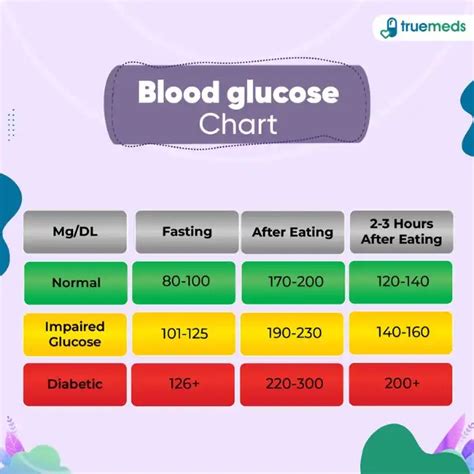Intro
Learn about normal blood sugar levels, glucose monitoring, and healthy range targets to manage diabetes and prediabetes, with expert tips on maintaining stable blood glucose levels.
Maintaining normal blood sugar levels is crucial for overall health and well-being. Blood sugar, also known as glucose, is the primary source of energy for the body's cells. When blood sugar levels are within a normal range, the body functions properly, and the risk of developing chronic diseases like diabetes, heart disease, and certain types of cancer is reduced. In this article, we will delve into the importance of normal blood sugar levels, the factors that influence them, and provide guidance on how to maintain a healthy blood sugar range.
Blood sugar levels are regulated by the pancreas, which produces insulin and glucagon, two hormones that work together to maintain a balance of glucose in the bloodstream. When we eat, our body breaks down carbohydrates into glucose, which is then absorbed into the bloodstream. The pancreas responds by releasing insulin, which helps to facilitate the entry of glucose into the body's cells, where it can be used for energy. Conversely, when blood sugar levels drop, the pancreas releases glucagon, which stimulates the liver to release stored glucose into the bloodstream.
Understanding normal blood sugar levels is essential for individuals with diabetes, as well as those who are at risk of developing the condition. According to the American Diabetes Association, approximately 34 million people in the United States have diabetes, and an additional 88 million have prediabetes, a condition characterized by elevated blood sugar levels that are not yet high enough to be classified as diabetes. By maintaining normal blood sugar levels, individuals can reduce their risk of developing these conditions and promote overall health and well-being.
What are Normal Blood Sugar Levels?

Normal blood sugar levels vary throughout the day, depending on factors such as meal times, physical activity, and sleep patterns. The American Diabetes Association recommends the following blood sugar targets for individuals with diabetes:
- Fasting blood sugar: 80-130 mg/dL
- Before meals: 70-130 mg/dL
- After meals: Less than 180 mg/dL
- At bedtime: 100-140 mg/dL
For individuals without diabetes, normal blood sugar levels are typically lower, ranging from 70-99 mg/dL when fasting and less than 140 mg/dL after meals.
Factors that Influence Blood Sugar Levels

Several factors can influence blood sugar levels, including:
- Diet: Consuming high amounts of sugar, refined carbohydrates, and saturated fats can cause blood sugar levels to rise.
- Physical activity: Regular exercise can help to lower blood sugar levels by increasing insulin sensitivity and glucose uptake in the muscles.
- Sleep: Poor sleep quality and duration can disrupt blood sugar regulation, leading to elevated levels.
- Stress: Chronic stress can raise blood sugar levels by stimulating the release of stress hormones like cortisol and adrenaline.
- Certain medications: Certain medications, such as steroids and certain psychiatric medications, can increase blood sugar levels.
How to Maintain Normal Blood Sugar Levels
Maintaining normal blood sugar levels requires a combination of healthy lifestyle habits, including:
- Eating a balanced diet that is low in sugar, refined carbohydrates, and saturated fats
- Engaging in regular physical activity, such as walking, cycling, or swimming
- Getting adequate sleep and practicing stress-reducing techniques, such as meditation or yoga
- Monitoring blood sugar levels regularly and adjusting diet and exercise habits accordingly
- Staying hydrated by drinking plenty of water and limiting sugary drinks
The Benefits of Maintaining Normal Blood Sugar Levels

Maintaining normal blood sugar levels has numerous benefits, including:
- Reduced risk of developing diabetes and other chronic diseases
- Improved energy levels and mental clarity
- Enhanced physical performance and endurance
- Healthier weight management
- Reduced risk of cardiovascular disease and certain types of cancer
Practical Tips for Maintaining Normal Blood Sugar Levels
Here are some practical tips for maintaining normal blood sugar levels:
- Start your day with a balanced breakfast that includes protein, healthy fats, and complex carbohydrates
- Choose whole, unprocessed foods whenever possible, such as fruits, vegetables, whole grains, lean proteins, and healthy fats
- Limit your intake of sugary drinks and snacks
- Incorporate physical activity into your daily routine, such as taking a walk after meals or doing a few jumping jacks during commercial breaks while watching TV
- Get enough sleep and practice stress-reducing techniques, such as deep breathing or meditation
Monitoring Blood Sugar Levels

Monitoring blood sugar levels is an essential part of maintaining normal blood sugar levels. There are several ways to monitor blood sugar levels, including:
- Fasting blood sugar tests: This test measures blood sugar levels after an overnight fast.
- Oral glucose tolerance tests: This test measures blood sugar levels after consuming a sugary drink.
- Continuous glucose monitoring: This involves wearing a small device that tracks blood sugar levels throughout the day.
- Self-monitoring of blood glucose: This involves using a glucometer to test blood sugar levels at home.
Understanding Blood Sugar Test Results
Understanding blood sugar test results is crucial for making informed decisions about your health. Here are some general guidelines for interpreting blood sugar test results:
- Fasting blood sugar:
- Normal: 70-99 mg/dL
- Prediabetes: 100-125 mg/dL
- Diabetes: 126 mg/dL or higher
- Oral glucose tolerance test:
- Normal: Less than 140 mg/dL
- Prediabetes: 140-199 mg/dL
- Diabetes: 200 mg/dL or higher
Maintaining Normal Blood Sugar Levels with Diet and Exercise

Maintaining normal blood sugar levels with diet and exercise requires a comprehensive approach that incorporates healthy eating habits, regular physical activity, and stress management. Here are some tips for maintaining normal blood sugar levels with diet and exercise:
- Eat a balanced diet that is low in sugar, refined carbohydrates, and saturated fats
- Incorporate physical activity into your daily routine, such as walking, cycling, or swimming
- Choose whole, unprocessed foods whenever possible, such as fruits, vegetables, whole grains, lean proteins, and healthy fats
- Limit your intake of sugary drinks and snacks
- Get enough sleep and practice stress-reducing techniques, such as deep breathing or meditation
Creating a Personalized Plan for Maintaining Normal Blood Sugar Levels
Creating a personalized plan for maintaining normal blood sugar levels involves setting realistic goals, tracking progress, and making adjustments as needed. Here are some steps for creating a personalized plan:
- Consult with a healthcare professional to determine your individual blood sugar targets
- Keep a food and activity diary to track your eating habits and physical activity
- Set realistic goals for improving your diet and exercise habits
- Monitor your blood sugar levels regularly and adjust your plan as needed
What are the symptoms of high blood sugar levels?
+High blood sugar levels can cause symptoms such as increased thirst and urination, blurred vision, fatigue, and slow healing of cuts and wounds.
How can I lower my blood sugar levels naturally?
+Lowering blood sugar levels naturally can be achieved through a combination of healthy diet, regular exercise, stress management, and getting enough sleep.
What are the risks of uncontrolled blood sugar levels?
+Uncontrolled blood sugar levels can increase the risk of developing chronic diseases such as diabetes, heart disease, and certain types of cancer.
In conclusion, maintaining normal blood sugar levels is crucial for overall health and well-being. By understanding the factors that influence blood sugar levels, incorporating healthy lifestyle habits, and monitoring blood sugar levels regularly, individuals can reduce their risk of developing chronic diseases and promote overall health. We encourage you to take action today by making informed decisions about your diet, exercise habits, and stress management. Share this article with a friend or family member who may benefit from this information, and join the conversation by commenting below with your thoughts and experiences on maintaining normal blood sugar levels.
